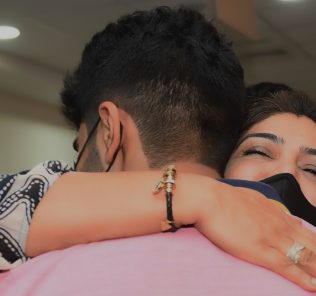Harry Styles, Taylor Swift, Marmite, GCSE and A Level Results, Rising UAE costs and the Bonfire of the Humanities: WHAT MADE THE NEWS FOR SCHOOLS, PARENTS AND STUDENTS IN EDUCATION THIS WEEK?
The Schools Report brings you the SchoolsCompared.com official Weekly Briefing on the Hottest News in Education.
Every Friday we bring you the latest stories in education in the UAE and around the world in the last 7 days. Here’s what’s been happening this week…
This Week in Education. UAE Education News. First. Every Friday. Only from SchoolsCompared.com.
‘Get Ready!’ 10 Things you need to know about GCSE and A-level Grading and Results this summer
As UAE students and pupils all over the world endure the nail-biting wait for their GCSE and A-Level exam results this August, the anxiety is unlikely to be quelled by the announcement from Ofqual, the exam board regulator, that students’ grades in 2022 will almost certainly be lower than they were last year.
However, the examinations watchdog insists that allowances will be made for the pandemic and says that boards have been instructed to take the impact of Covid into account when looking at grade boundaries.
This is all part of a new range of measures that Ofqual has introduced for 2022 in order to curb the impact of the grade inflation that we’ve seen over the past couple of years, while also acknowledging the exceptional circumstances this year’s exam-takers have endured.
Read Ofqual’s full list of 10 Things you need to know about how exam boards will be marking students’ GCSE and A-Level exam results this year.
US universities launch courses dedicated to Harry Styles, Taylor Swift and Lady Gaga
Texas State University Honors College (TSUHC) has become the latest in a line of US universities to announce academic courses devoted to the study of modern celebrities, with the launch of its course on former One Direction singer Harry Styles in Spring 2023.
Called “Harry Styles and the Cult of Celebrity: Identity, the Internet, and European Pop Culture”, the syllabus will focus on the pop star’s work in both music and film in order to “understand the cultural and political development of the modern celebrity”.
It is the most recent in a flurry of university courses cashing in on celebrity culture. New York University announced in February this year that it was offering a course on Taylor Swift, analysing her transition from country crooner to high-powered music entrepreneur.
Lady Gaga, Beyoncé, Jay-Z, Kanye West and the Beatles also have courses or university modules based on their works.
Are these courses the future of education? Decide here.
Bloom World Academy shakes up UAE education landscape with 7 progressive new initiatives never before seen in the country

Nilay Ozral, CEO, Bloom Education (pictured) leading the launch of Bloom World Academy and its ambition to set benchmarks in UAE education
Bloom World Academy (BWA), the landmark new progressive Tier 1 IB school opening for Pre-KG to Grade 9 students at its state-of-the-art campus in Al Barsha, in Dubai in August 2022, has announced a series of firsts for education in the Emirates.
Ranging from a flexible start time, to weekly parents lunches, these initiatives are all part of its aim to deliver a new benchmark IB school that better meets the academic and whole child needs of students and the aspirations of parents.
John Bell, Founding Principal of Bloom World Academy, explained:
“Bloom World Academy is the embodiment of what a true IB curriculum school should be. We are a firm believer in stage, not age, when it comes to education – and the school’s flexible, customised approach will support this in every aspect of school life.
We are so happy to, finally, in the IB curriculum space, be able to offer parents an education for their children which really does put the student first.”
Read about Bloom World Academy’s seven firsts for the UAE.
Shock and “Heartbreak” as UK University scraps classics, philosophy, drama and creative writing courses
Roehampton University in the UK will scrap its classics and its philosophy courses as well as many English and arts degrees while telling more than 100 academics to reapply for their jobs, the Universities and College Union (UCU) has said.
It said that around 64 jobs are expected to be cut due to the closures and that it is launching new “career-focused courses” across all departments. A petition against the closures has been signed by more than 2,250 people.
Dame Mary Beard – Professor of Classics at Cambridge University and the high-profile author of multiple classics books – tweeted that the changes are “worse than sad” and “about a wider erosion of humanities” in new universities.
Author and former Roehampton student Nikki Dudley tweeted: “I did my combined BA in English Lit and Creative Writing at Roehampton. This is absolutely terrible. I wouldn’t be where I am without those courses. Heart breaking..”
Roehampton’s move follows the UK government’s decision to end funding for degrees where less than 40% of graduates find “highly skilled” employment within six months, which also triggered an earlier decision by Sheffield Hallam University to scrap its standalone English literature degree from 2023.
On Sheffield Hallam’s scrapping of the English Literature course Jason Jawando, 50, research support administrator, told The Guardian:
“The government completely overlooks the role of education for its own sake; that it makes people better citizens. Employability is important, but measuring crudely whether you’re in a high-earning job or not is the wrong approach. It smacks very much of ‘us and them’ politics. The message seems to be: if you’re from a lower socio-economic background, study something useful and we’ll keep you in your place.”
Roehampton was rated 65th in The Sunday Times Good University Guide last year, but moves up to 30th place for social inclusion.
Its classic studies course is well regarded and can be taught with a foundation year, making it accessible to those who have not had the chance to study ancient languages at school. The foundation-year classics course will be cut under the plans.
“Educationalism vandalism” to see scrapping of BTEC as British education moves to two track A Level and T Level education for students
“This is an act of educational vandalism. BTECs have been established for decades and they are internationally recognised.”
Lord Kenneth Baker. Former Conservative Member of Parliament and Secretary of Education.
“These are people’s lives, future and opportunities to get on in life [being thrown on the scrap heap]. Quite often, they are lifelines. I speak from experience. After failing my GCSEs, as a working-class 16-year-old with a difficult background, it was a BTEC in the Performing Arts that got me back into education and, ultimately, to university. It made me excited about education again. A BTEC was my second chance.”
Vicky Foxcroft. Member of Parliament Lewisham. Shadow Secretary of State for Pensions.
In the most severe shake-up of British education in memory, the UK government is to push ahead with effectively scrapping BTEC as it moves to a system based around academic A Levels and technical T Levels. The result? For detractors, the impact will be educational vandalism with claims that:
- Forcing students to choose between studying A-levels or T-Levels from the age of 16 removes choice and the diversity at the heart of British education.
- The loss of BTEC is effectively the death of vocational education in British schools.
- What constitutes a “good” subject is now defined in terms of whether its study leads to employment. The inherent value of learning in itself is lost.
- T-levels are 25% practical and 75% academic, writing off the many students that are gifted practically.
- Removing BTECs will mean that many students will now never finish their education well equipped to progress to further training or to get skilled jobs.
- Removing BTECs will mean that far fewer students will ever be able to study at university.
Read the full story here on SchoolsCompared.com
UAE Student: “Internships should be an essential part of every student’s education”
As education increasingly looks towards more vocational, practical-based courses for students that will have better real-world application once they leave school, how can pupils know which vocational course to choose? As beneficial as it might be to be prepared for the real world, it’s not always easy for children and teens to know which subjects they are going to enjoy or be good at, let alone which career they should be preparing themselves for.
Genuine and credible UAE based internships are the answer, says Susan Thomas, a GEMS FirstPoint School student. She says:
“My internship has allowed me to discover what I really love, and… what I’m less keen on.”
“I firmly believe that doing an internship, or any sort of work experience, is really important for students to better succeed in the real world. Due to the pandemic, communication, presentation and time management are skills that are now even more in demand, and, through an internship, students have the chance to develop these essential skills.”
Read Susan’s full story.
Could eating Marmite curb the student anxiety crisis?
New research shows that high levels of vitamins in popular savoury spread Marmite – which has a cult following in the UK – can quell anxiety by interfering with your brain chemistry. The spread, which is made from concentrated yeast extract, is rich in B vitamins, which have been found to modify chemical messengers that cause the brain to overreact.
Scientists at Reading University carried out a trial to see whether high doses of B6 could reduce anxiety and depression. More than 300 adults with an average age of 23 were split into different groups and given daily supplements of either vitamin B6, vitamin B12 or placebo tablets for a month.
Those who took B6 reported statistically significant reductions in depression and anxiety, although vitamin B12 had no effect compared with the placebo. Research has shown B vitamins and Marmite can help reduce stress, but this is the first study to narrow it down to B6 in particular. Vitamin B6 was found to increase the body’s production of gamma-aminobutyric acid, a chemical that blocks impulses between nerve cells in the brain.
Following reports of a rising mental health crisis in university students, could this simple and affordable foodstuff help to keep anxiety at bay?
The doses used in the study are much higher than the amount that could typically be consumed from food, the researchers caution.
“It is important to acknowledge that this research is at an early stage and the effect of vitamin B6 on anxiety in our study was quite small compared to what you would expect from medication,” said Field.
“However, nutrition-based interventions produce far fewer unpleasant side effects than drugs, and so in the future people might prefer them as an intervention.”
Nonetheless, a slice of Marmite on buttery toast is an easy snack for a student to make, and it never hurt anyone – unless you’re one of the Marmite haters, of course…
Thousands to miss out on university places as top A-level grades slashed
About 60,000 fewer top A-level grades will be awarded this summer, compared with last year, meaning thousands of teenagers will miss their university offers.
Ofqual, the exam watchdog, has announced that it plans to set exam grade boundaries this summer to reflect “a midway point between 2021 and 2019”, so the proportion of students getting an A* or A grade at A-level will fall.
Dennis Sherwood, a former external consultant for Ofqual and partner with accountants Coopers & Lybrand, tole The Times he expected a backlash from students when A-level results are released on August 18.
He predicts that the number of A* grades will drop by about 40,000 compared with last summer, and the number of A grades by about 20,000.
In 2019, the last year when proper public exams were held before Covid, 57,410 A* grades were awarded, equal to 7.7 per cent per cent of all grades.
That jumped to 144,440, or 19.1 per cent, last summer when exams did not take place and grades were determined by teachers. Overall, 45 per cent of A-level grades were marked at A* or A in 2021, compared with 25 per cent in 2019.
Sherwood said the dip in top grades at A-level, combined with other factors, would “cost students places in one of the most competitive university admissions rounds for years”.
Not only will fewer top A-level grades be awarded but more students have struggled to achieve university offers. “The upshot is that teenagers who would have had opportunities two years ago are not getting the same chances this year,” Sherwood said.
75% of teachers think shifting GCSEs and A levels online will be a good thing
Three-quarters of secondary teachers believe that on-screen assessment will be a good thing if the challenges are “addressed effectively”, according to a survey carried out by Teacher Tapp on behalf of AQA.
More than eight in 10 (85 per cent) of the 3,816 secondary teachers surveyed believe that on-screen exams could be possible within the next five years, but 87 per cent said that their school infrastructure would need updating for their successful introduction.
Meanwhile, eight in ten (81 per cent) of heads surveyed feel that digitisation of exams is inevitable, and of the heads and trust leaders interviewed in person, 85 per cent considered digital examinations a “positive move” if implemented effectively.
A UK Department for Education spokesperson said: “Using technology in assessments has significant potential to benefit students, teachers and schools. With Ofqual, we are beginning to consider the opportunities and benefits that further digital assessments could allow in the long-term.”
UAE School Bus fees likely to increase in new term due to rising fuel costs

School bus fee rises in 2022 add to a spiralling cost of living crisis for parents as inflation bites
As parents juggle already rising accommodation and food prices, school bus fees are the latest expense that is set to go up in the new academic year because of increasing fuel costs.
The National reports that one bus company will increase fares by up to Dh550 a year, while parents at one Dubai school were told to expect an Dh800 rise.
Until now The National says private school bus companies have mostly absorbed the rising cost of fuel prices, which have skyrocketed by more than 70 per cent since January.
Nausherwan Hussain, owner of Arab Falcon Bus Rental, which works with 14 schools in the Emirates told The National:
“We have absorbed most of the costs. We were assessing the fuel prices and these have also gone up in July.”
He said his company is working with schools to try to split the costs instead of passing them on to parents.
School Transport Services (STS), one of the largest operators, told The National that it “continues to absorb the majority of these added costs”.
India and UK recognise qualifications in “landmark” agreement
The UK and India have agreed to officially recognise each other’s higher education qualifications – a move that has been hailed as a “landmark, historic agreement” and will be “excellent news” for Indian students coming to the UK, reports The PIE News.
The agreements means that British A-levels and equivalent courses, undergraduate and postgraduate degrees will be recognised in India, so graduates of UK institutions will be able to apply for postgraduate qualifications, or embark on government careers, in the South Asian country.
Equally, the Bachelor’s degree, Master’s degree and Doctoral degree awarded in the Republic of India will be considered equivalent or comparable to the Bachelor’s degree, Master’s degree and Doctoral degree respectively awarded in the United Kingdom of Great Britain and Northern Ireland.
“This is a landmark, historic agreement which has been many years in the making,” said Vivienne Stern, chief executive of Universities UK International.
“Qualifications students receive will be recognised on both sides, making it easier for students to progress in education and move into jobs.”
Read the full Memorandum of Understanding here.
Call to protect childhood and time with Mum and Dad as Scotland considers raising school start age to 6, in line with Europe
The age at which children start school in Scotland may be increased in line with most other European countries, according to a plan put forward to the Scottish National Party conference, reports The Herald Scotland.
Under the proposal, children would remain in nursery until they are six and then move to primary school.
Currently Scottish children usually start school between the ages of 4 and 5 years old, depending on when their birthday falls. In the UAE, children often start school from the age of 3 years, although schooling is not mandatory in the country until the year a child turns 6.
The resolution points to global evidence showing that children in countries with older school starting ages reach a higher standard than those who start younger.
It also highlights that children in European countries who attend play-based kindergarten until the age of 6 or 7 have higher levels of health and wellbeing, while an early start to formal education is linked to the development of social, emotional and mental health problems.
The SNP proposal says it would align Scotland with European countries such as Italy, Germany, and Spain, where the formal school starting age is six. In many other EU countries including Denmark, Sweden, Estonia, Finland and Poland children begin school at seven, the Herald reports.
Read the full story at the Herald Scotland.
Tabitha Barda’s The School Report © SchoolsCompared.com. 2022. All rights reserved.
Do you have story related to Education that you wish to share, or which you think should be shared? We always protect our sources if you wish to remain anonymous. Please contact me at [email protected].












































































Leave a Response